The “caviar diplomacy” scandal: Azerbaijan’s lobbying in PACE and the Munich Court verdict
Azerbaijan’s lobbying in PACE
The scandal surrounding Azerbaijan’s years-long secret lobbying and corrupt dealings in the Parliamentary Assembly of the Council of Europe is back in the spotlight following a recent verdict by the Higher Regional Court of Munich.
For the first time, a German court has sentenced a former MP over a bribery scheme orchestrated by Azerbaijani officials to influence European politicians — a practice widely known as “caviar diplomacy,” as described by journalists and watchdog groups.
The scandal severely damaged Azerbaijan’s reputation in European institutions, revealing a vast corruption network used to whitewash the country’s human rights record.
This article explores the Munich court’s verdict against former German MP Eduard Lintner, the broader network of European politicians implicated in the scandal, and the tactics used by Azerbaijani officials to shield the regime’s rights abuses.
It also examines how this case has shaped perceptions of Azerbaijan across Europe – and what it means for political prisoners like Gubad Ibadoghlu.
Verdict and charges against Eduard Lintner
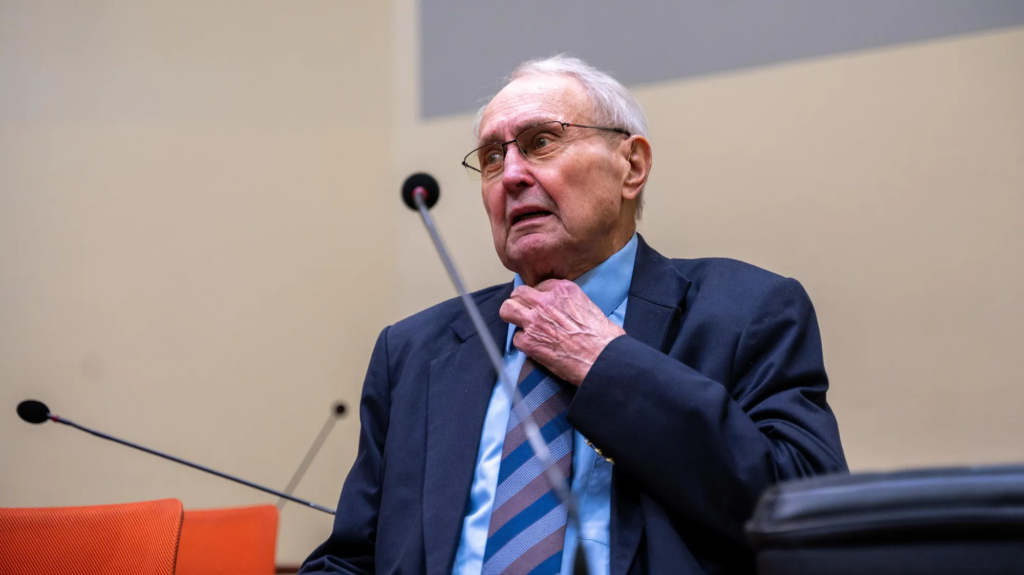
Former Bundestag member Eduard Lintner was found guilty of a corruption offence by a Munich court in July this year. The court ruled that the 80-year-old had paid bribes to European officials on behalf of Azerbaijan’s government — the first time in Germany that a former MP has been convicted on such charges.
Although Lintner denied the allegations, claiming he had lobbied for Azerbaijan “within legitimate and respectable boundaries,” the six-month trial revealed that the payments he made to other politicians amounted to bribery. He was handed a suspended sentence of nine months in prison.
As Die Zeit reported, the court upheld the prosecution’s arguments that Lintner had bribed elected officials — and the defence’s attempt to secure an acquittal failed.
The charges against Lintner focused on a system of influence and corruption he built to serve Azerbaijan’s interests. As early as the beginning of 2024, Bavarian prosecutors brought charges against Lintner and another former MP, Axel Fischer, under a statute targeting the “purchase of mandate-holders” — in other words, the bribery of parliamentarians.
The investigation found that Lintner had carried out covert lobbying for years in both PACE and the Bundestag, aimed at improving Azerbaijan’s image, while receiving large sums of money from abroad.
According to German MP Frank Schwabe, the court’s verdict makes it clear that Eduard Lintner “built a system of influence and corruption financed by Azerbaijan” — and was ultimately punished for it.
Karin Strenz and Axel Fischer: The course and outcome of the investigation
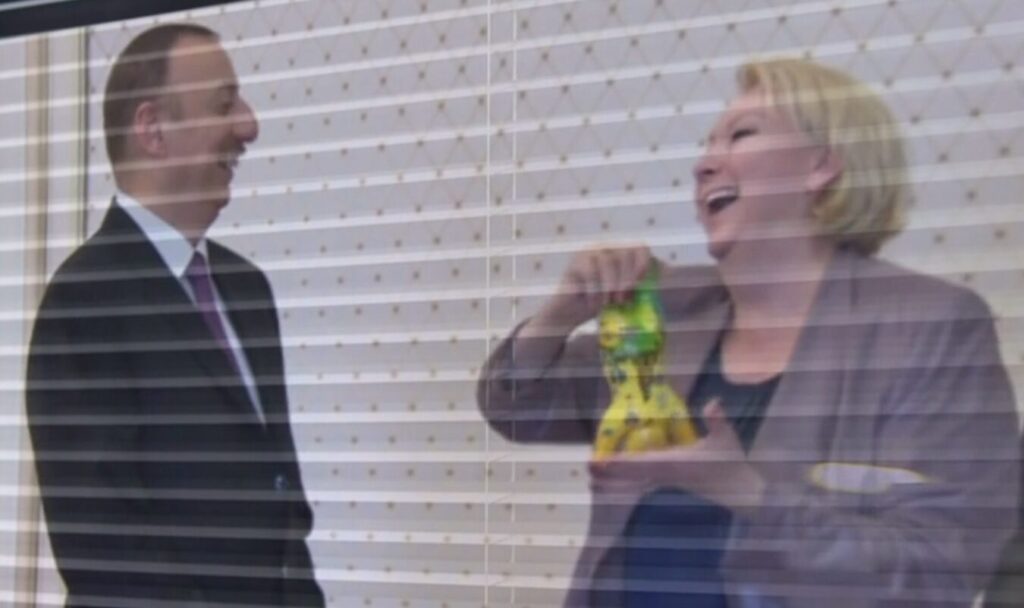
Two other prominent figures in the Lintner case were former members of the German Bundestag: Karin Strenz and Axel Fischer. Strenz represented Germany’s ruling Christian Democratic Union (CDU) and also served as part of the German delegation to PACE. She was named as one of the main recipients of bribes from both Lintner and directly from Baku, as part of the “Azerbaijani Laundromat” scheme uncovered in 2017.
Although Strenz died suddenly in 2021, the Munich court continued its investigation and concluded that she had received at least €111,000 from Azerbaijan. According to the verdict, this sum was deemed “proceeds from a criminal offence,” and the court ordered the same amount to be recovered from Strenz’s husband. The court found that she had received the money both through a lobbying firm set up by Lintner and directly from Azerbaijani officials — and in return, consistently advocated for Azerbaijan’s interests in PACE.
Axel Fischer, also a CDU member and former Bundestag deputy, served as head of the German delegation to PACE. He was also named among the key figures in the Azerbaijani corruption network. The Munich prosecution charged Fischer with bribery alongside Lintner. According to the charges, he received tens of thousands of euros from Azerbaijan between 2015 and 2016 — including, for example, a bribe of €21,800 in 2016 alone.
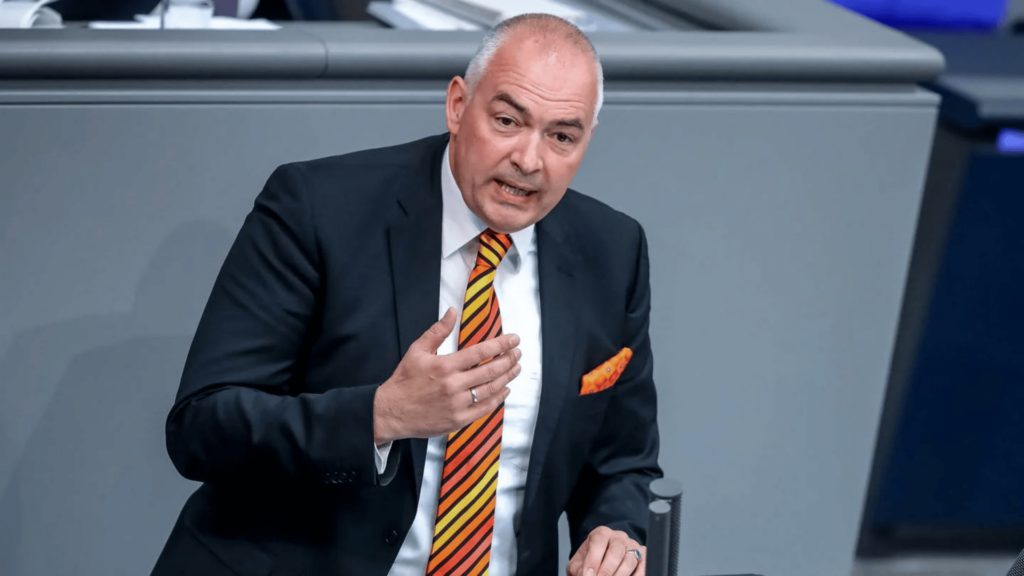
Fischer is reported to have voted in Azerbaijan’s interests in PACE in exchange for bribes — most notably in January 2016, when he served as the Assembly’s rapporteur on Armenia and supported Azerbaijan’s position in a vote related to the Nagorno-Karabakh conflict.
Fischer denies any wrongdoing and rejects the charges. His criminal case was separated into a separate proceeding, and the trial has been paused due to health-related issues. Nevertheless, according to German law enforcement, the evidence gathered against him is considered substantial, and he remains one of the key figures in the “Azerbaijani corruption case.”
“Caviar Diplomacy” and a financial network of 19 shell companies
The main method used by Azerbaijani authorities to advance their interests in PACE was a large-scale bribery scheme later dubbed “caviar diplomacy.” The approach involved offering delegates from Council of Europe member states lavish gifts — such as caviar, carpets, and jewellery — along with paid trips and direct cash payments, in exchange for favourable positions toward Azerbaijan.
An investigation by the Organized Crime and Corruption Reporting Project (OCCRP), published in 2017 under the title The Azerbaijani Laundromat, revealed that between 2012 and 2014, Azerbaijan’s ruling elite operated a secret slush fund worth $2.9 billion to bribe political figures across Europe.
In some cases, money from this “slush fund” was channelled to PACE members through unofficial payments. In return, these parliamentarians backed pro-Azerbaijani resolutions in Strasbourg and helped water down critical reports on the country’s human rights situation.
Lintner played a central role in the “caviar diplomacy” scheme. After leaving PACE in 2010, he continued to act as an unofficial lobbyist for Azerbaijan. German investigators found that by 2016, he had received millions of euros through a network of 19 shell companies. Much of the money — allegedly aimed at “promoting friendship” between Germany and Azerbaijan — was passed on to pro-Baku politicians, including CDU’s Karin Strenz. One €61,000 transfer came just days after a report he authored praised Azerbaijan’s 2013 elections as meeting “German standards.” Other funds were routed through lobbying groups he founded in Berlin and distributed through networks in Belgium and elsewhere.
The indictment also named other individuals and organisations alongside Lintner. Among them was Belgian politician Alain Destexhe, a former member of PACE, who was accused of organising election observation missions in Azerbaijan through an association funded by Lintner.
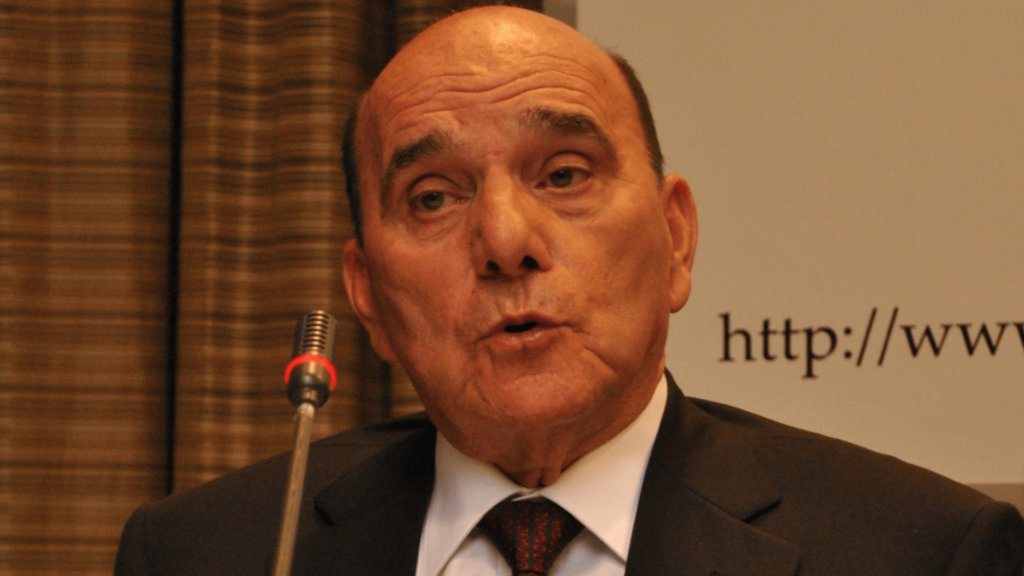
In 2018, a witness testifying before independent Council of Europe experts investigating the corruption scandal stated that the key figure behind Azerbaijan’s lobbying efforts in PACE was Elkhan Suleymanov, a member of the Azerbaijani delegation. According to the witness, Suleymanov may have had access to as much as €30 million for these “dirty lobbying” activities.
Following these revelations, the Council of Europe took significant action, permanently barring 13 PACE members implicated in the corruption cases — including Lintner and Strenz — from participating in the organisation’s activities. It later emerged that at least eight of them had previously served as election observers in Azerbaijan. This underscored that “caviar diplomacy” was used not only to influence debates in Strasbourg, but also to manipulate international election observation missions.
Reactions across Europe: Public response and legal action
The “caviar diplomacy” scandal sparked outrage across Europe and led to concrete action. The Council of Europe launched an independent investigation, which confirmed that several PACE members had received payments in exchange for supporting Azerbaijan’s interests. Thirteen officials were permanently banned from the institution.
The case drew widespread media attention and was condemned by civil society groups. Transparency International welcomed the Lintner verdict and called for further accountability.
Law enforcement agencies in Germany, Italy, France, and other countries opened investigations. In Germany, police carried out raids tied to the case. In Italy, a former MP was convicted of taking bribes from Azerbaijan — a ruling later overturned on procedural grounds, but still seen as a legal precedent.
Across Europe, the scandal reinforced political momentum to address foreign influence and corruption at the highest levels.
Fallout for Azerbaijan’s reputation in Europe
In January 2024, PACE took an unprecedented step for the first time in its history: it refused to ratify the mandate of Azerbaijan’s new delegation. The vote passed with 76 in favour and 10 against, citing Azerbaijan’s severe violations of its commitments to human rights and democratic standards.
Official Baku withdrew its delegation from the Assembly just hours before the vote.
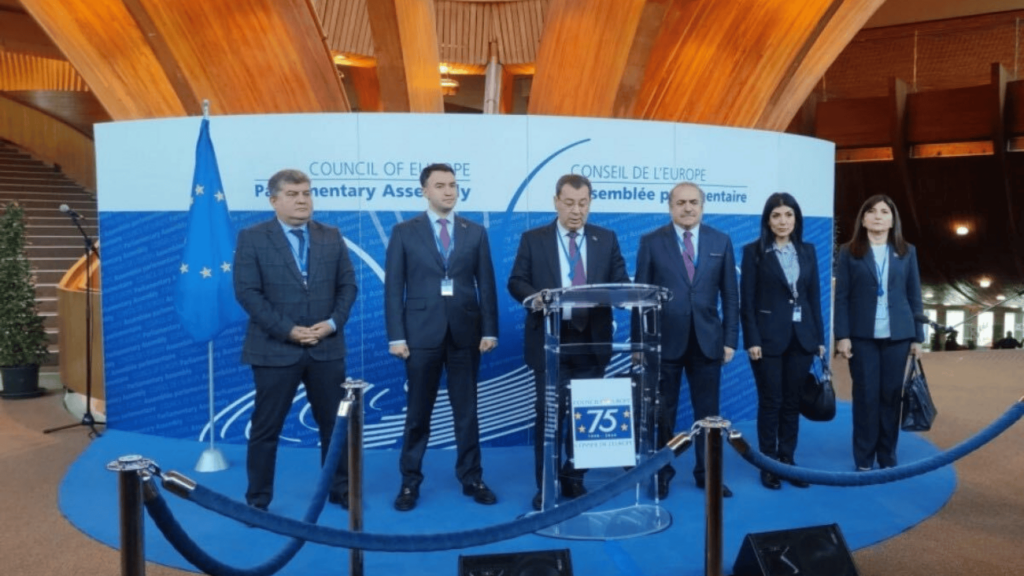
Ultimately, “caviar diplomacy” backfired: instead of delivering short-term image gains, it dealt a serious blow to Azerbaijan’s credibility at the pan-European level. Today, Azerbaijan’s attempts to use soft power and lobbying are met with suspicion, and statements from the country’s officials are viewed with growing distrust in European institutions.
#FreeGubad and the political prisoner problem
The “caviar diplomacy” scandal not only exposed corruption — it also renewed attention on Azerbaijan’s political prisoners. For years, Baku jailed opposition figures, journalists, and activists while bribing officials in PACE to avoid international condemnation. A striking example was the failed 2013 resolution on political prisoners, derailed by bribed lawmakers who abstained.
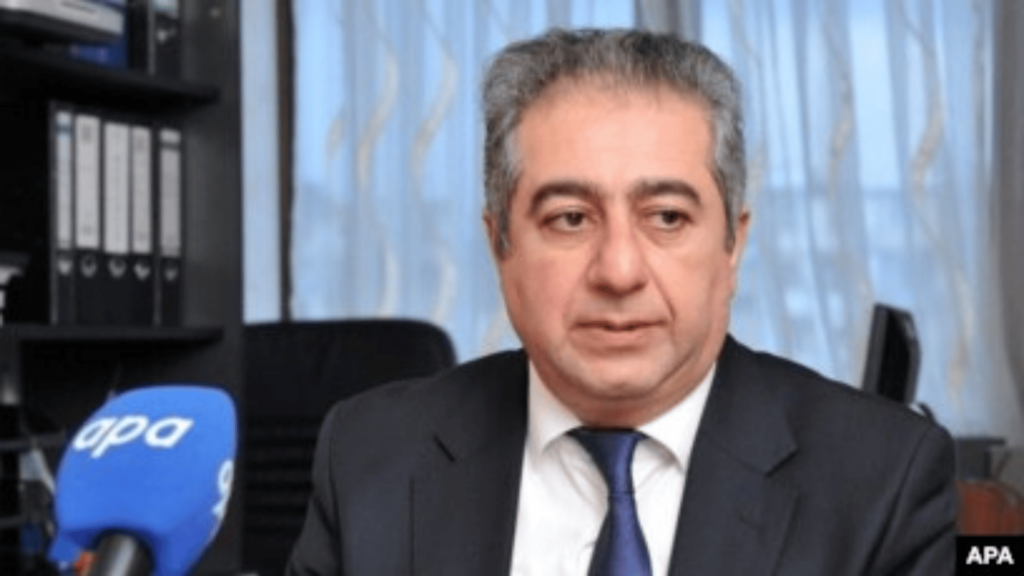
The case of economist and opposition figure Gubad Ibadoghlu has become symbolic. Arrested in July 2023, Ibadoghlu is widely seen as a prisoner of conscience. The hashtag #FreeGubad has gained traction among European politicians, including PACE members, demanding his release.
The Lintner verdict has underscored how bribery helped silence criticism of Azerbaijan’s repression. Now, that silence is breaking. European institutions are paying renewed attention to political prisoners, and calls for accountability are growing louder.


















